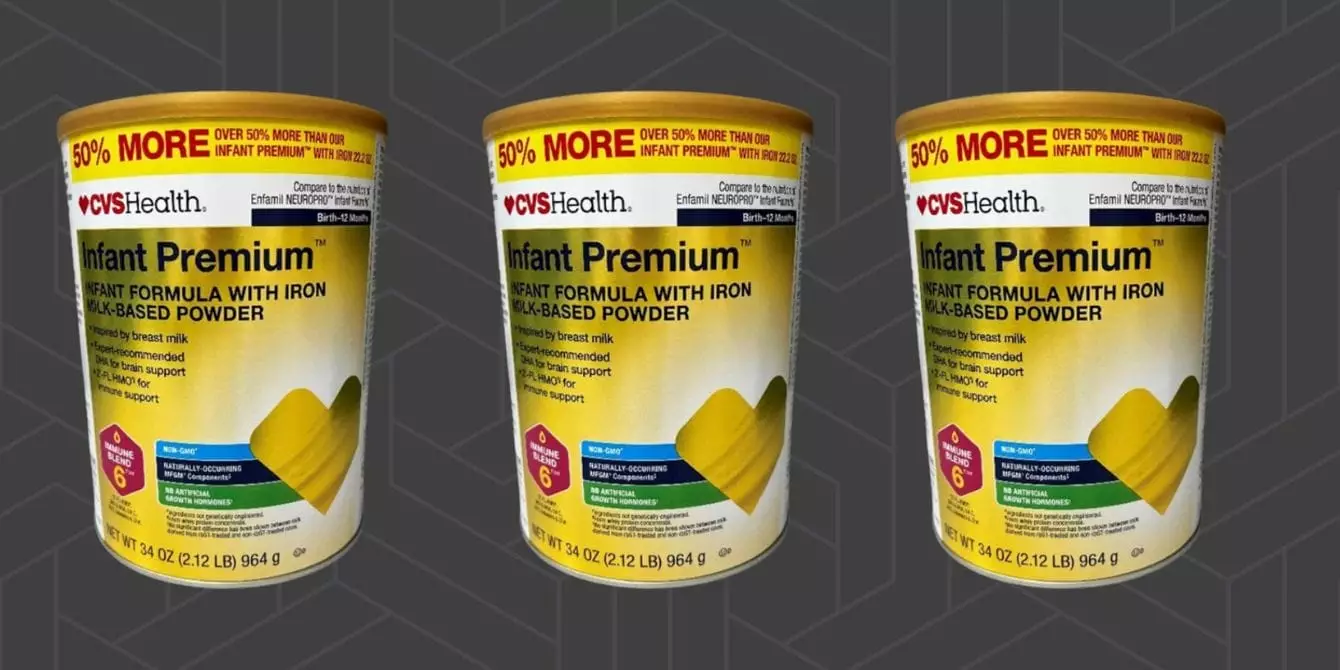In a significant move that every parent should be aware of, Perrigo has issued a voluntary recall involving approximately 16,500 cans of their infant formula due to vitamin D levels detected at concentrations exceeding allowable limits. This alarming revelation, highlighted in a recent announcement by the Food and Drug Administration (FDA), stems from routine testing procedures that unearthed potential health risks linked to certain batches of their store-brand Premium Infant Formula with Iron Milk-Based Powder.
The recall targets three specific lot codes within one batch that was shipped to various retailers in early February 2024, including major grocery chains such as H-E-B in Texas and select CVS locations across multiple states, including Florida, California, South Carolina, Virginia, Indiana, Tennessee, New Jersey, Michigan, Pennsylvania, Rhode Island, and Missouri. Parents are particularly urged to scrutinize cans bearing use-by dates of November 2025, which could be among the affected products. The lot codes involved are T11LMYC, T11LMXC, and T09LMXC.
While health authorities confirm that no adverse events have yet been reported in connection with the consumption of these products, the recall is being executed out of caution. The FDA has expressed that for most infants, consuming formula from the implicated lot codes is unlikely to lead to serious health issues. However, there’s a compelling warning concerning a small group of infants, particularly those who may have underlying health complications, such as impaired renal function. These infants are physiologically more vulnerable and could experience adverse symptoms if they consume the recalled formula.
Vitamin D toxicity in infants can manifest through various nonspecific symptoms, such as poor feeding, constipation, and in severe circumstances, may escalate to grave health issues like seizure or kidney failure. According to researchers from the American Academy of Pediatrics (AAP), while serious vitamin D intoxication is considered rare, proactive monitoring for symptoms such as lethargy, dehydration, and failure to thrive should be on every caregiver’s radar.
The recommendation is straightforward: parents need to be vigilant for any of these subtle signs, particularly in infants who are already classified as vulnerable. Given the potential severity of the symptoms associated with vitamin D overdose, parents must act decisively in the event of any concerns.
In light of this disturbing situation, it is essential for parents to locate the lot codes and use-by dates printed on the bottom of their formula cans. For those who have purchased the product, any concerns regarding this recall should be directed to Perrigo Consumer Affairs during regular business hours. Additionally, parents are encouraged to report any unusual symptoms related to this incident through the FDA’s MedWatch Adverse Event Reporting program to ensure comprehensive data tracking and safety measures.
Furthermore, in critical developmental stages when infants rely heavily on formula for nutrition, parents should prioritize consulting their child’s pediatrician with any health-related inquiries. This proactive communication can aid in mitigating potential risks and ensuring the child’s well-being.
To summarize, while the Perrigo infant formula recall may present no immediate cause for alarm for most families, the importance of vigilance cannot be overstated. This situation underscores the need for parents and caregivers to remain informed and aware of product recalls that could impact their children’s health. Being proactive and educated allows parents to swiftly address potential issues and safeguard their infants, reinforcing a culture of safety and responsibility in child nutrition. As the recall unfolds, it serves as a reminder that even routine products can pose unexpected risks, demanding our continuous attention and responsiveness.

